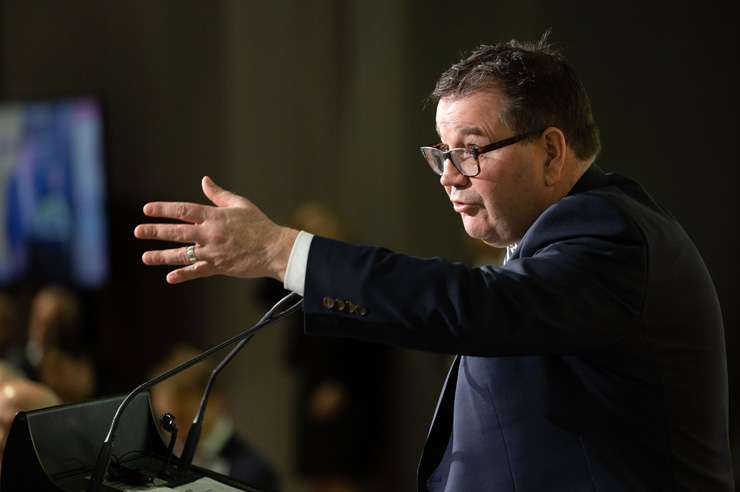Interest rates and the Budget are at the forefront of most economists’ minds right now. The latter is due to be delivered by Finance Minister Grant Robertson on May 18, while an announcement around the former is due to be made by the Reserve Bank of New Zealand six days later on May 24.
Most of the major banks are picking a 0.25 percentage point increase in the Official Cash Rate, but they also expect that will be the last of big hikes.
A cash rate peak of 5.5% has long been signalled, and while the Reserve Bank's surprise rate hike of 0.5 percentage points last month was widely interpreted as a warning shot to banks who were toying with reducing mortgage rates to attract new customers, most experts believe interest rates have peaked.
That will be a relief to the thousands of homeowners who are set to refix in coming months, but annual inflation is still running at 6.7%, according to the latest Consumers Price Index (CPI) figures, and strong jobs figures could mean there is capacity in the economy to absorb higher interest rates.
Start your property search
Read more:
- House no first-home buyer would touch sells for $400,000
- CCCFA changes: Uber Eats back on the menu for mortgage applicants
- Price discounts of $95,000 as flood of new-build homes hits the market
The Reserve Bank doesn’t think house prices will rise anytime soon – in fact the exact opposite is true, otherwise it wouldn’t be planning to ease the loan to value ratio rules for owner-occupiers and investors.
Cost of living will be high on the agenda in the Budget, and given that we are in an election year there may be surprises in store for the housing market and mortgage-holders.
Infometrics chief executive and principal economist Brad Olsen, however, doesn’t think the Budget will offer anything new for homeowners or those with a vested interest in residential property.
“It’s probably no news, which might be good news, after all the changes we've seen in previous years, with interest deductibility [no longer being allowed against income on rental properties], Healthy Homes and similar. The focus [of the Budget] is more likely to be around the cost of living,” he says.

Finance Minister Grant Robertson: Does he have any Budget surprises up his sleeve? Photo / Marty Melville
He expects the biggest housing-related changes will come later, in the run-up to the October 14 election. “There is potential that the government signals a strong level of building focus in the Budget. It could be the government wants to bolster or support a higher level of construction, even when the private sector is not willing to do as much that would be likely required.”
However, Olsen concedes the contents of the Budget have the ability to influence the RBNZ’s cash rate decisions over the next few months.
In its weekly economic update, ASB economists say the key data to watch ahead of the May 24 OCR decision will be the net migration figures for March and RBNZ’s survey of inflation expectations. They believe both will point to an imminent end to aggressive rate hikes.
“Strong net immigration should continue to boost labour supply growth and in turn put downward pressure on wage growth. Meanwhile, inflation expectations are expected to cool, in line with receding headline inflation and the dip in surveyed pricing intentions. Combined, we expect the data to be consistent with the RBNZ nearing the end of its tightening cycle.”
ASB’s economists are picking a 0.25 percentage point rise in the cash rate on May 24, and that the OCR will “remain at 5.5% until Q2 2024, at which stage the OCR is gradually trimmed to 3% by mid-2025”.

Immigration numbers are likely to have an impact on the economy and demand for housing. Photo / Getty Images
Kiwibank’s economics team is also expecting a 0.25 percentage point hike at the end of the month, and is picking that this will be the last one for this cycle, headlining their recent update: “The end of rate hikes is near.”
The jobs market is more a worry, however. “In the May Financial Stability Report, the RBNZ noted that just a small share of borrowers are struggling with the higher interest rates. But in aggregate, households are able to manage the rising debt servicing costs as mortgages are repriced onto higher rates. Historically low levels of unemployment helps. But watch this space. Pressure on household budgets is building and will be tested by the forecast rise in unemployment," the team wrote in its weekly update.
“Looking ahead, the labour market is expected to begin loosening; it must for inflation to retreat. We are forecasting the unemployment rate to begin lifting from around the middle of the year on its way to 5-5.5% in 2024.”
Westpac chief economist Kelly Eckhold says New Zealand is getting close to “a long-awaited turning point where the fruits of the RBNZ’s efforts to restrain demand and inflation pressures should be becoming apparent”.
“As inflation pressures recede, we see scope for rate cuts in 2024 and 2025, although not as quickly as the market is pricing in,” he writes in Westpac's weekly economic note.
“As a result, we now see value in fixing for terms as long as three years. While there isn’t a lot of difference between the expected cost of fixing for shorter vs longer periods, a longer period provides more certainty around the size of repayments. We would still regard fixing beyond three years as relatively expensive."

















































































